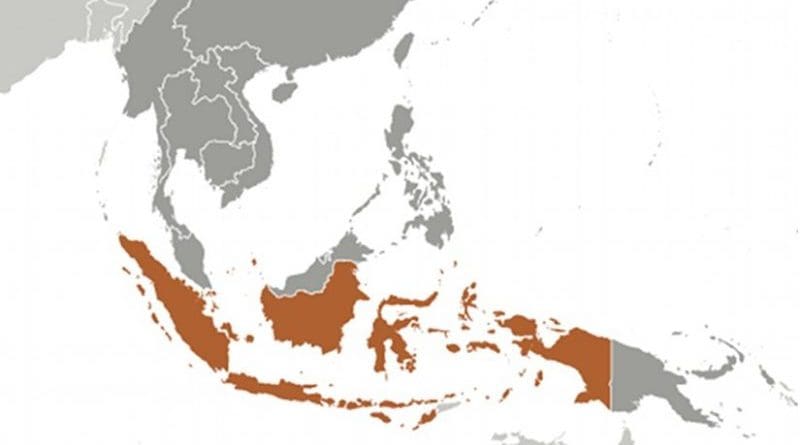Indonesia: Religious Vigilante Mobs Target Critical Minds – OpEd
By UCA News
By Siktus Harson
(UCA News) — The recent attack on a university professor shows that radicalism remains a big threat in multifaith Indonesia and its influence should never be overlooked.
It also indicates that religious vigilantes are back and this time they are more deadly, targeting individuals who speak boldly against religious fundamentalism or are critical of Islamic practices.
One of their targets was Ade Armando, a lecturer at the University of Indonesia and an avid social media campaigner for religious tolerance and democracy. He was brutally attacked by intruders during a protest organized by students in Jakarta last week.
The protest, among others, demanded the government not to hold up the general elections scheduled for two years from now. The postponement plan was designed by political parties that want President Joko Widodo to lead the country after his term ends in 2024.
Armando was at the protest scene to shoot some videos for the Indonesia Movement for All, a channel that he launched in March. The organization consists of journalists, activists, scientists and people who care about diversity, nationalism and unity, which have been undermined by radicalism and anti-democracy movements.
However, when a group of protesters, believed to be part of a radicalism network, noticed him, they immediately beat and knocked him down to the ground. He was stripped of his clothes and his body was covered in blood.
Armando often challenges fellow Muslims who have a shallow understanding of Islam. He frequently speaks against radicalism or religious bigotry. He is among proponents of democracy and pluralism.
His views are considered anti-Islam and he has been a target of conservatives and radicals. They tried many ways to jail him, including by lodging blasphemy complaints. He was reported for saying, among other things, that “God is not an Arab” or the “Quran teaches only three daily prayers, not five times.”
But the police found no evidence to proceed with such complaints, which angered the complainants, who accused police of intentionally keeping his case at bay.
What happened to the lecturer tells the Indonesian public that radicalism is not dead. That it doesn’t stop with the disbandment of intolerant groups or putting some controversial clerics behind bars.
Some observers even believed that the pandemic was the time for radical groups to consolidate. The pandemic may have restricted their movement, but it did not stop them from intimidating people who have different views on social media. Now, as pandemic restrictions ease, they have regrouped and shown the public that they still exist.
Their nature to harm someone critical of Islamic teaching or criticize provocative clerics remains unchanged, and last week’s assault was evidence. The police have arrested six people linked to the assault, but some remain at large.
The public believe that the culprits belong to the Islamic Defenders Front (FPI), which was disbanded in December 2020 for its connection to terrorism activities. A year before it was banned, its members kidnapped and tortured Ninoy Karundeng, a social media campaigner whose views were opposite to theirs.
The kidnapping occurred on Sept. 30, 2019, when Indonesians marked the deadly 1965 communist coup. They took him to a mosque in Jakarta and brutally beat him and threatened to kill him. He survived.
Karundeng was assaulted because of his writings that criticized some clerics. He was also against Prabowo Subianto, now Indonesia’s minister of defense, who was supported by many radicals during the 2019 presidential race.
Some FPI officials were linked to the kidnapping, including Munarman, its former secretary-general who is in jail for his involvement in several terrorist activities.
But even though two FPI leaders, Munarman and Muhammad Rizieq Shihab, are in jail, radical movements have started to show their teeth in the post-pandemic era.
The assaults on Armando and Karundeng, plus the endless threats and harassment against peace and interfaith activists, have opened the eyes of Indonesians that fighting against radicalism is a never-ending battle.
Anyone who speaks against religious fanaticism or extremism is in constant danger. The state and all social elements need to stand with them in their fight against radicalism.
This is much more needed now in the run-up to the 2024 elections. Radicals or even terrorists are seeking their way to get into the presidential palace by supporting candidates who can accommodate them.
Armando was a supporter of Basuki Tjahaja Purnama during the 2016 Jakarta governor’s election, which put him at odds with radical groups rallying behind governor Anies Baswedan.
In all probability, political parties and crooked politicians will use conservative or radical groups to win more voters in the next presidential poll in February 2024.
When politicians politicize religion for personal gains, chaos will take place, as happened during the 2019 presidential race. Power-hungry politicians and radical groups whose goal was to establish an Islamic caliphate tried to manipulate the results of the election. But they failed.
Indonesia’s radical groups that notably have been influenced by Islamic State ideology never give up. The anti-terrorism squad may have arrested thousands of suspected terrorists, but many are still out there disguised as civil servants.
This is what Indonesians and young people who are influenced by radical ideologies should worry about more.
* The views expressed in this article are those of the author and do not necessarily reflect the official editorial position of UCA News.

